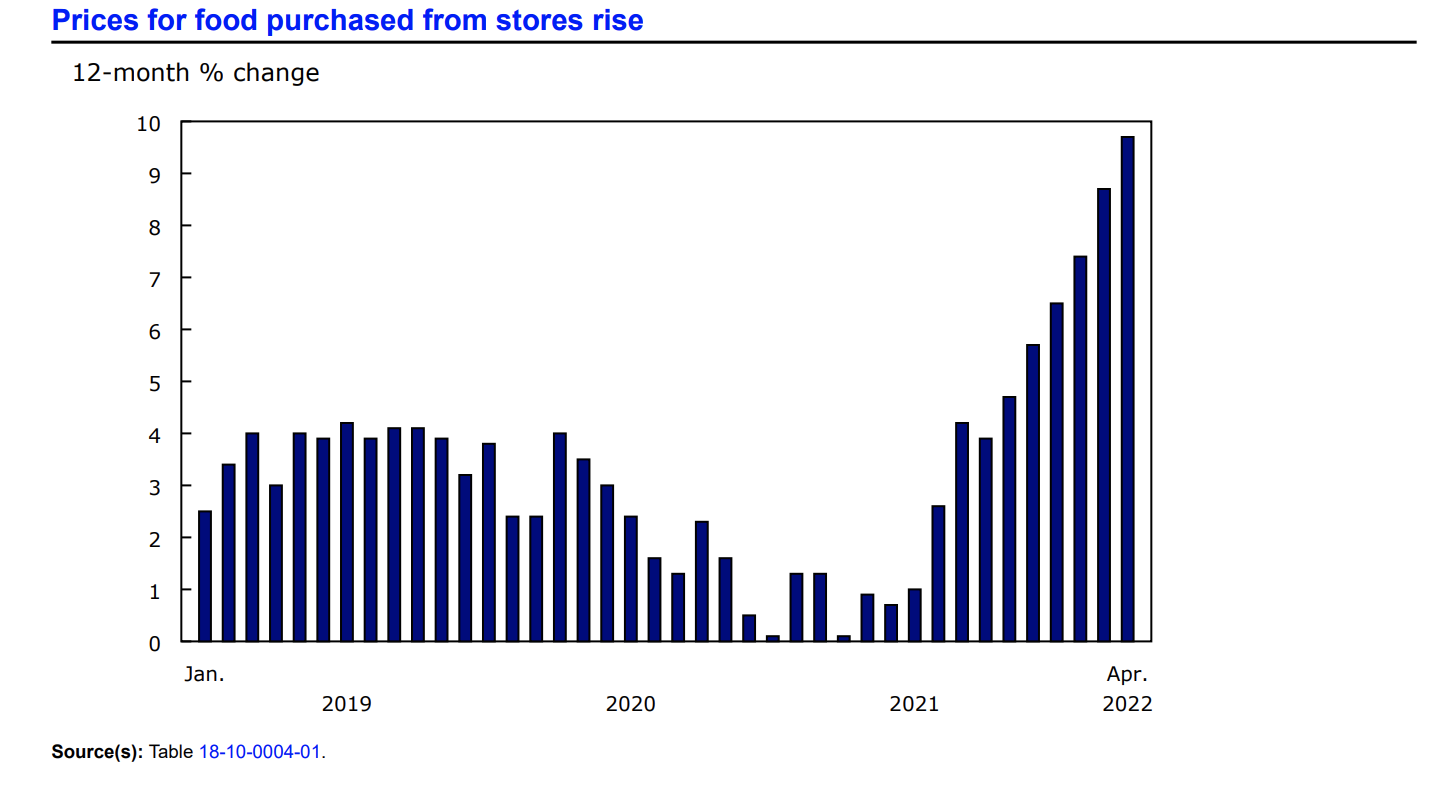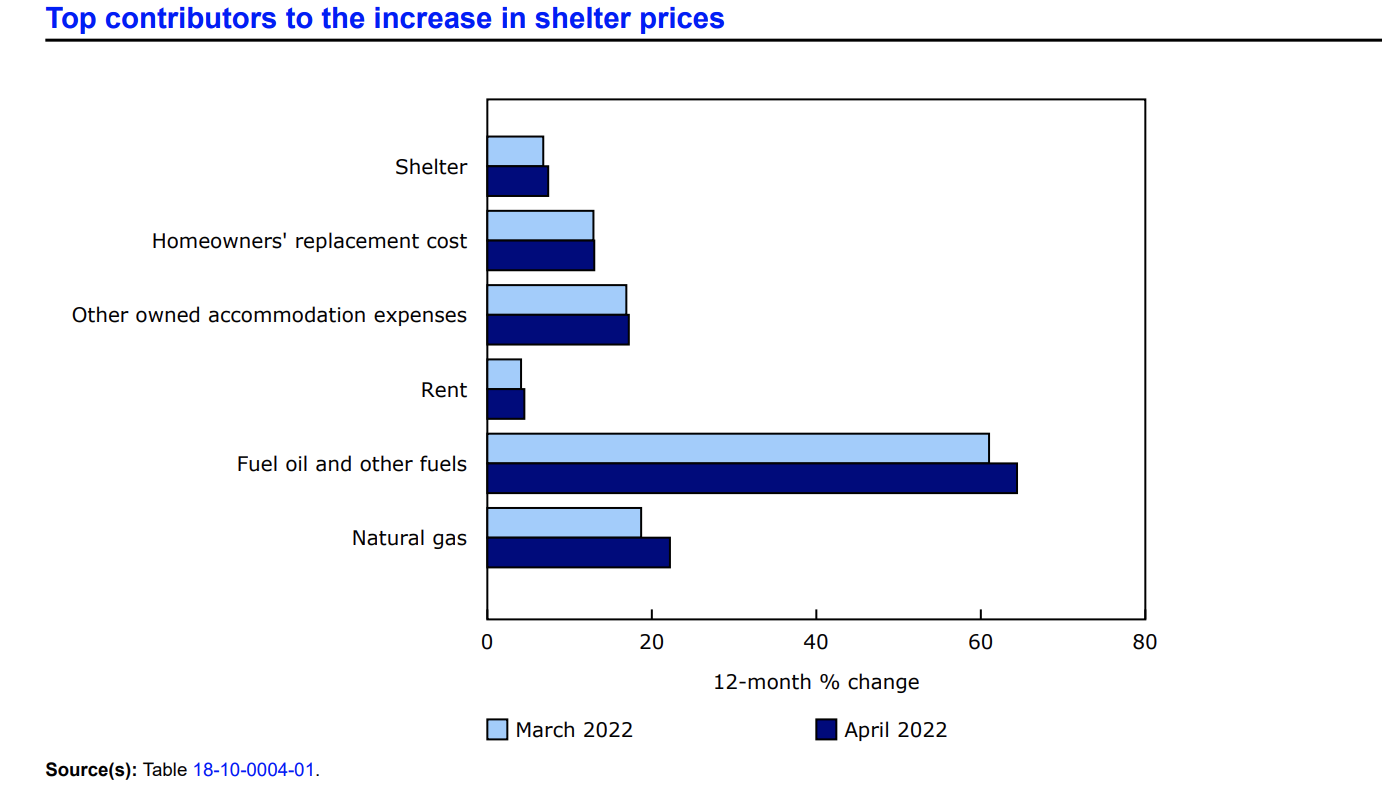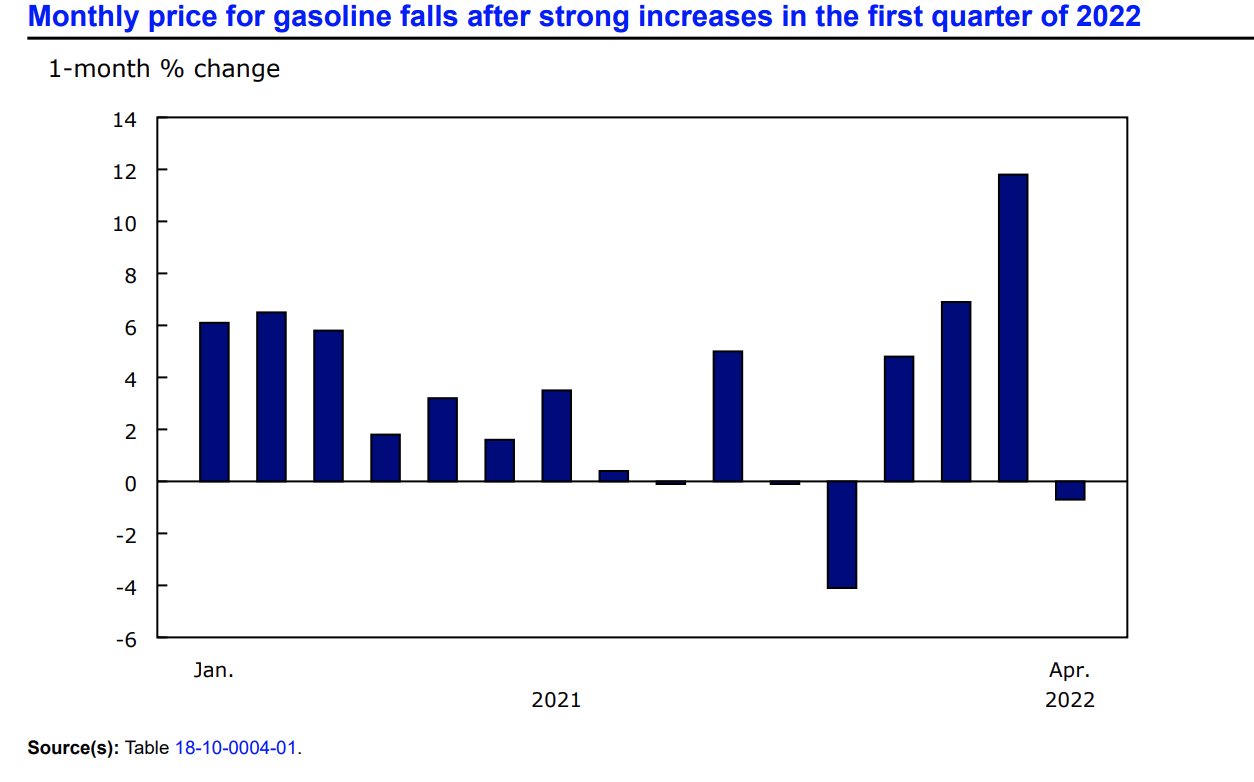The Consumer Price Index (CPI) increased by 0.6% in April on a monthly basis, reported Statistics Canada. This was after a 1.4% rise seen in March. On a year-over-year basis, the Consumer Price Index (CPI) rose 6.8% in April.
“In April, Canadian consumer prices rose 6.8% year over year, a slight increase from March (+6.7%). The year-over-year increase in April was largely driven by food and shelter prices. Gas prices increased at a slower pace in April compared with March, moderating the acceleration of the all-items Consumer Price Index (CPI) in April.
Russia’s invasion of Ukraine in late February continued to affect energy, commodity and, most notably, food prices. With the unemployment rate falling to a record low in April, strong employment figures tend to put upward pressure on prices. In April, average hourly wages for employees rose 3.3% on a year-over-year basis, meaning that, on average, prices rose faster than wages, and Canadians experienced a decline in purchasing power,” explained the agency in its monthly report.

(Source: Statistics Canada)
Food
In April, the price of food increased by 9.7% since this time last year, with Canadian consumers paying more for virtually every food item.
“This increase, which exceeded 5% for the fifth month in a row, was the largest increase since September 1981. For comparison, from 2010 to 2020, there were five months when prices for food purchased from stores increased at a rate of 5% or higher.
On a year-over-year basis, increases in food prices have been broad-based, with consumers paying more for nearly everything at the grocery store. Basics, such as fresh fruit (+10.0%), fresh vegetables (+8.2%) and meat (+10.1%), were all more expensive in April compared with a year earlier. Prices for starchy foods such as bread (+12.2%), pasta (+19.6%), rice (+7.4%) and cereal products (+13.9%) also increased. Additionally, a cup of coffee (+13.7%) cost more in April 2022 than in April 2021,” stated the agency.
Statistics Canada proved a statement regarding the exponential increase in food prices.
“The recent period of higher food prices has occurred within the context of numerous events that are continuing to fuel higher prices. With both countries being major wheat exporters, Russia’s invasion of Ukraine in late February put upward price pressure on food products that use wheat. Poor weather in growing regions has also impacted prices for food. Additionally, higher prices for inputs such as fertilizer and natural gas continued to increase the cost of production for farmers, who have passed some of these costs on to consumers.”

(Source: Statistics Canada)
Shelter
Over the last 12-month period, the cost of shelter in Canada increased by 7.4%. Statistics Canada noted that this was “the fastest pace since June 1983”.
“Higher prices for energy sources used to heat homes, such as natural gas (+22.2%) and fuel oil and other fuels (+64.4%), contributed to the increase,” explained the agency in its report.
With regards to composite indexes, the homeowners’ replacement cost index, which is correlated to the new home prices, rose 13%, and the other owned accommodation expenses index increased by 17.2%.
Gasoline
On a monthly basis, the price of gasoline declined by 0.7% in April. Year over year, in April Canadian consumers paid 36.3% more at the pumps, compared to the 39.8% increase seen in March.
“Global crude oil prices declined in April, in part due to lower global demand expectations,” explained Stats Can in its report.

(Source: Statistics Canada)
Statistics Canada provided a statement regarding regional highlights across the country.
“On a year-over-year basis, the CPI increased at a faster pace in April than in March in seven provinces.
Although prices in Ontario increased 6.9% in April year over year, they grew at a slower pace than in March (+7.0%). This is in part attributed to the gradual implementation of the provincial and federal agreement to subsidize licensed daycare and the provincial government’s removal of passenger vehicle registration fees.
Price growth slowed the most in Alberta, partly due to the temporary removal of the fuel tax on gasoline initiated by the provincial government.”
Source cited: https://www150.statcan.gc.ca/n1/daily-quotidien/220518/dq220518a-eng.htm


